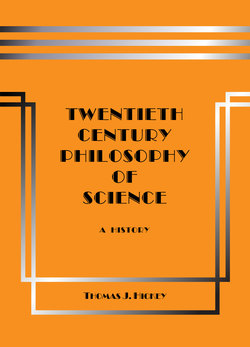Читать книгу Twentieth-Century Philosophy of Science: A History (Third Edition) - Thomas J. Hickey - Страница 120
На сайте Литреса книга снята с продажи.
Scientific Explanation
ОглавлениеOn Duhem’s philosophy theories do not explain the laws nor do the laws explain the facts. Explanation is proper only to metaphysics and not to science. In the opening sentence of the introduction to his Aim and Structure of Physical Theory, Duhem says that he offers a simple logical analysis of the method by which physical science makes progress. While affirming the autonomy of physics with his thesis that agreement with experiment is the sole criterion of truth for a physical theory, Duhem has a distinctive concept of scientific progress, which he elaborates in the appendices to the book.
He says that there are two types of development in physics that are occurring simultaneously. One is what today would be called the revolutionary type of development consisting of a succession of alternative theories, in which one theory arises, dominates the scene for the moment, and then collapses to be replaced by another theory. The other is an evolutionary progress in which more ample and more precise mathematical representation of the phenomenal world is constantly disclosed by experiment. When the progress of experimental science goes counter to a theory and compels the theory to be modified or transformed, the purely representative part enters nearly whole into the new theory, bringing to it the inheritance of all the valuable possessions of the old theory, while the hypothetical part falls away in order to give way to another theory. The first type is identified with the mechanistic physical systems including Newtonian physics as well as Cartesian and atomic physics. The second type is identified with general thermodynamics, which Duhem believes will lead physical theory toward its goal.
Duhem believes that the goal of physics is the convergence toward an analogy with Aristotle’s physics. He concludes in his discussion of the value of theory, that the physicist is compelled to recognize that it would be unreasonable to work for the progress of physical theory, if theory were not the increasingly better defined and more precise reflection of a metaphysics. He thus concludes his book with the thesis that belief in an order transcending physics is the ultimate metaphysical justification of physical theory.
